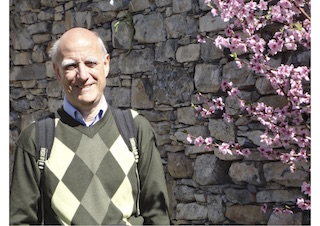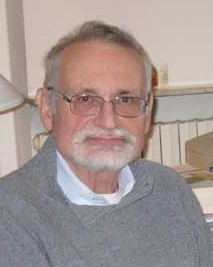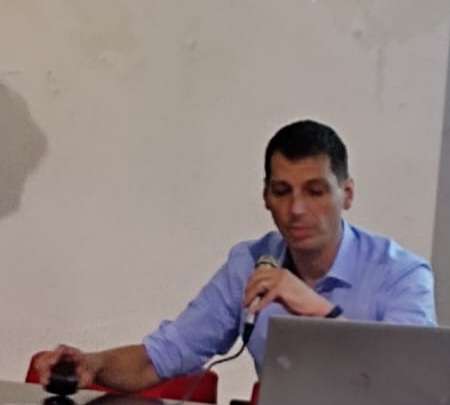Studying at the University of Verona
Here you can find information on the organisational aspects of the Programme, lecture timetables, learning activities and useful contact details for your time at the University, from enrolment to graduation.
Academic calendar
The academic calendar shows the deadlines and scheduled events that are relevant to students, teaching and technical-administrative staff of the University. Public holidays and University closures are also indicated. The academic year normally begins on 1 October each year and ends on 30 September of the following year.
Course calendar
The Academic Calendar sets out the degree programme lecture and exam timetables, as well as the relevant university closure dates..
| Period | From | To |
|---|---|---|
| I semestrino A | Sep 30, 2013 | Nov 16, 2013 |
| I semestrino B | Nov 18, 2013 | Jan 18, 2014 |
| II semestrino A | Feb 24, 2014 | Apr 12, 2014 |
| II semestrino B | Apr 14, 2014 | Jun 7, 2014 |
| Session | From | To |
|---|---|---|
| Sessione invernale | Jan 20, 2014 | Feb 22, 2014 |
| Sessione estiva | Jun 9, 2014 | Jul 31, 2014 |
| Sessione autunnale | Sep 1, 2014 | Sep 27, 2014 |
| Session | From | To |
|---|---|---|
| Sessione estiva | Jul 8, 2014 | Jul 9, 2014 |
| Sessione autunnale (I appello) | Oct 28, 2014 | Oct 29, 2014 |
| Sessione autunnale (II appello) | Dec 16, 2014 | Dec 17, 2014 |
| Sessione invernale straordinaria | Mar 17, 2015 | Mar 18, 2015 |
| Period | From | To |
|---|---|---|
| Festa di Ognissanti | Nov 1, 2013 | Nov 1, 2013 |
| Festa dell'Immacolata Concezione | Dec 8, 2013 | Dec 8, 2013 |
| VACANZE DI NATALE | Dec 22, 2013 | Jan 6, 2014 |
| Vacanze Pasquali | Apr 17, 2014 | Apr 22, 2014 |
| Festa della Liberazione | Apr 25, 2014 | Apr 25, 2014 |
| Festa dei lavoratori | May 1, 2014 | May 1, 2014 |
| Festa del S. Patrono S. Zeno | May 21, 2014 | May 21, 2014 |
| Festa della Repubblica | Jun 2, 2014 | Jun 2, 2014 |
| Vacanze Estive | Aug 11, 2014 | Aug 15, 2014 |
Exam calendar
Exam dates and rounds are managed by the relevant Culture and Civilisation Teaching and Student Services Unit.
To view all the exam sessions available, please use the Exam dashboard on ESSE3.
If you forgot your login details or have problems logging in, please contact the relevant IT HelpDesk, or check the login details recovery web page.
Should you have any doubts or questions, please check the Enrollment FAQs
Academic staff

Avezzu' Guido
 guido.avezzu@univr.it
guido.avezzu@univr.it

Bassetti Massimiliano
 massimiliano.bassetti@univr.it
massimiliano.bassetti@univr.it
 045802 8376
045802 8376
Capelli Roberta
 alberto.cavarzere@univr.it
alberto.cavarzere@univr.it

Chiecchi Giuseppe
 giuseppe.chiecchi@univr.it
giuseppe.chiecchi@univr.it
 +39 045802 8117
+39 045802 8117
 giorgio.graffi@univr.it
giorgio.graffi@univr.it

Mastrocinque Attilio
 attilio.mastrocinque@univr.it
attilio.mastrocinque@univr.it
 +39 045802 8386
+39 045802 8386
 linda.napolitano@univr.it
linda.napolitano@univr.it

Pasini Roberto
 pasini.roberto@univr.it
pasini.roberto@univr.it
 +39 045802 8121
+39 045802 8121
 alberto.scandola@univr.it
alberto.scandola@univr.it
Tani Stefano
 stefano.tani@univr.it
stefano.tani@univr.it
 +39 045802 8110
+39 045802 8110
 gianmaria.varanini@univr.it
gianmaria.varanini@univr.it
Study Plan
The Study Plan includes all modules, teaching and learning activities that each student will need to undertake during their time at the University.
Please select your Study Plan based on your enrollment year.
1° Year
| Modules | Credits | TAF | SSD |
|---|
Un insegnamento a scelta tra i seguentiLingua straniera competenza linguistica liv. b1 (informatizzato)2° Year activated in the A.Y. 2014/2015
| Modules | Credits | TAF | SSD |
|---|
Un insegnamento a scelta tra i seguentiUn insegnamento a scelta tra i seguentiDue insegnamenti a scelta tra i seguentiUn insegnamento a scelta tra i seguenti3° Year activated in the A.Y. 2015/2016
| Modules | Credits | TAF | SSD |
|---|
Un insegnamento a scelta tra i seguentiTre insegnamenti a scelta tra i seguenti | Modules | Credits | TAF | SSD |
|---|
Un insegnamento a scelta tra i seguentiLingua straniera competenza linguistica liv. b1 (informatizzato)| Modules | Credits | TAF | SSD |
|---|
Un insegnamento a scelta tra i seguentiUn insegnamento a scelta tra i seguentiDue insegnamenti a scelta tra i seguentiUn insegnamento a scelta tra i seguenti| Modules | Credits | TAF | SSD |
|---|
Un insegnamento a scelta tra i seguentiTre insegnamenti a scelta tra i seguenti | Modules | Credits | TAF | SSD |
|---|
Legend | Type of training activity (TTA)
TAF (Type of Educational Activity) All courses and activities are classified into different types of educational activities, indicated by a letter.
Romance Philology (i+p) (2014/2015)
Teaching code
4S000915
Credits
12
Coordinator
Language
Italian
Also offered in courses:
- Romance Philology (i) of the course Bachelor’s degree in Cultural Heritage
- Romance Philology (p) of the course Bachelor’s degree in Humanities
- Romance Philology (i) of the course Bachelor’s degree in Humanities
The teaching is organized as follows:
II MODULO PARTE (P)
Credits
6
Period
Semestrino IB
Academic staff
Roberta Capelli
Learning outcomes
Module: I MODULO PARTE (I)
-------
Romance Philology is generally defined as the historico-comparative study of Romance (or Neo-Latin) languages and literatures. The fields of enquiry include late Latin, the medieval literatures of the Romance languages, historical and general linguistics, and textual criticism. The goal of the course is to train students in the basic knowledge of Romance philology.
Module: II MODULO PARTE (P)
-------
Romance philology is a field of scientific research that studies neo-latin languages (i.e. vernacular tongues that developed from Latin) and their related literatures in a historico-comparative perspective. The course is designed to give students a critical insight into the works and culture of some of the most important medieval authors by means of different methods of interpretation (textual and literary criticism, codicology, etc.).
Course pre-requisites: none.
Program
Module: I MODULO PARTE (I)
-------
The course is designed as a general introduction, divided into three parts:
1) Textual criticism: this part will offer an overview on the main methods of editing a medieval text.
2) Romance linguistics: this section will give the basic linguistic knowledge of how the Romance languages evolved from Latin. A selection of the most representative early romance texts will be read, translated and commented during this part of the course.
3) The Romance of Tristan: European fortune of the romance of Tristan. A selection of the Old French Tristan’s poems will be read, translated and commented during the class (Thoma’s and Béroul’s Roman de Tristan, Folies Tristan).
Bibliography:
The student is expected to have a thorough knowledge of the following texts:
I. L. Renzi – A. Andreose, Manuale di linguistica e filologia romanza, Bologna, Il Mulino, 2003. Da preparare: Introduzione and chapters I, II, III, IV, VI, VII, VIII.
II. A. Stussi, Breve avviamento alla filologia italiana, Bologna, il Mulino, 2002, Introduction and chapters I, III, IV, V.
III. F. Brugnolo – R. Capelli, Profilo delle letterature romanze medievali, Roma, Carocci, 2011. (Chapters 1 and 2).
IV. Béroul, Tristano e Isotta, a cura di Gioia Paradisi, Alessandria, Edizioni dell’Orso, 2013.
V. Thomas, Tristano e Isotta, a cura di Fabio Troncarelli, Milano, Garzanti, 2005.
Notes:
Further bibliography will be made available during the course (and online in pdf format). Students who are unable to attend class must contact the Professor for integrative bibliography.
Module: II MODULO PARTE (P)
-------
MEDIEVAL SONGBOOKS AND ROMANCE LYRICAL TRADITIONS.
The course introduces students to the handwritten manuscripts that collect the vernacular poetry produced by the troubadours in Southern France, by the trouvères in Northern France and by the Galician-portuguese trobadores in Spain, between the 11th and 14th centuries. Through the description and analysis of the most notheworthy manuscript books, the ways they circulated and have been handed down to us, their internal structure and their often rich decorative programs, the course aims at giving students an overall understanding of the development of European lyric tradition. The most representative poems of these literary traditions (courtly love songs, satirical poems, hybrid texts) are put into their linguistic and historical contexts and are examined from the thematic, metric and lexical-stylistic point of view.
Bibliography:
1. TEXTBOOKS
I. Furio Brugnolo - Roberta Capelli, Profilo delle letterature romanze medievali, Roma, Carocci, 2011.
2. ANTHOLOGIES
*** Important: The exam questions will focus on the texts read and analyzed during the course.
I. Giuseppe E. Sansone (ed.), La poesia dell’antica Provenza: testi e storia dei trovatori, Parma, Guanda, 1993.
II. Aurelio Roncaglia (ed.), Antologia delle letterature medievali d’oc e d’oïl, Milano, Edizioni Accademia, 1989.
III. Giuseppe E. Sansone (ed.), Diorama lusitano: poesie d'amore e di scherno dei trovatori galego-portoghesi, Milano, Rizzoli, 1990.
3. CRITICAL ESSAYS
I. D’Arco Silvio Avalle, I manoscritti della letteratura in lingua d’oc, new edition by Lino Leonardi, Torino, PBE, 1993, ch. III: La tradizione manoscritta della lirica occitanica, pp. 61-106.
II. Giuseppe Tavani, Poesia del Duecento nella penisola iberica. Problemi della lirica galego-portoghese, Roma, Edizioni dell'Ateneo, 1969; pt. II, ch. 3: Come si è costituita la tradizione manoscritta della lirica galego-portoghese, pp. 145-175.
III. Further bibliography will be made available during the course and considered an integral part of the exam.
4. ADDITIONAL INFORMATION
Students who are unable to attend class must contact the Professor for integrative bibliography.
Examination Methods
Module: I MODULO PARTE (I)
-------
Final oral examination.
Module: II MODULO PARTE (P)
-------
Final oral examination.
Type D and Type F activities
Modules not yet included
Career prospects
Module/Programme news
News for students
There you will find information, resources and services useful during your time at the University (Student’s exam record, your study plan on ESSE3, Distance Learning courses, university email account, office forms, administrative procedures, etc.). You can log into MyUnivr with your GIA login details: only in this way will you be able to receive notification of all the notices from your teachers and your secretariat via email and soon also via the Univr app.
Graduation
List of theses and work experience proposals
| theses proposals | Research area |
|---|---|
| tesi di Glottologia, Storia comparata, Linguistica storica | ENGLISH LANGUAGE - Grammar and Syntax – Grammatik und Syntax |
| tesi di Glottologia, Storia comparata, Linguistica storica | GERMANIC LANGUAGE - Dialectology - Dialektologie |
| tesi di Glottologia, Storia comparata, Linguistica storica | HUMANITIES & SOCIAL STUDIES - HUMANITIES & SOCIAL STUDIES |
| tesi di Glottologia, Storia comparata, Linguistica storica | Indo-European languages & literatures - Indo-European languages & literatures |
| tesi di Glottologia, Storia comparata, Linguistica storica | LINGUISTICS - LINGUISTICS |
| Stage | Research area |
|---|---|
| Lavorare in archivio | Various topics |
| L'iter del libro in biblioteca | Various topics |
Gestione carriere
Linguistic training CLA
Student mentoring
Requisiti classi di abilitazione insegnamento
Requisiti necessari per accedere alle classi di abilitazione per l'insegnamento.
vedi allegato pdf
Inoltre, per informazioni sui 24 CFU nelle discipline antropo-psico-pedagogiche e nelle metodologie e tecnologie didattiche, si veda -> LINK
Documents
| Title | Info File |
|---|---|
|
|
pdf, it, 307 KB, 30/11/21 |































